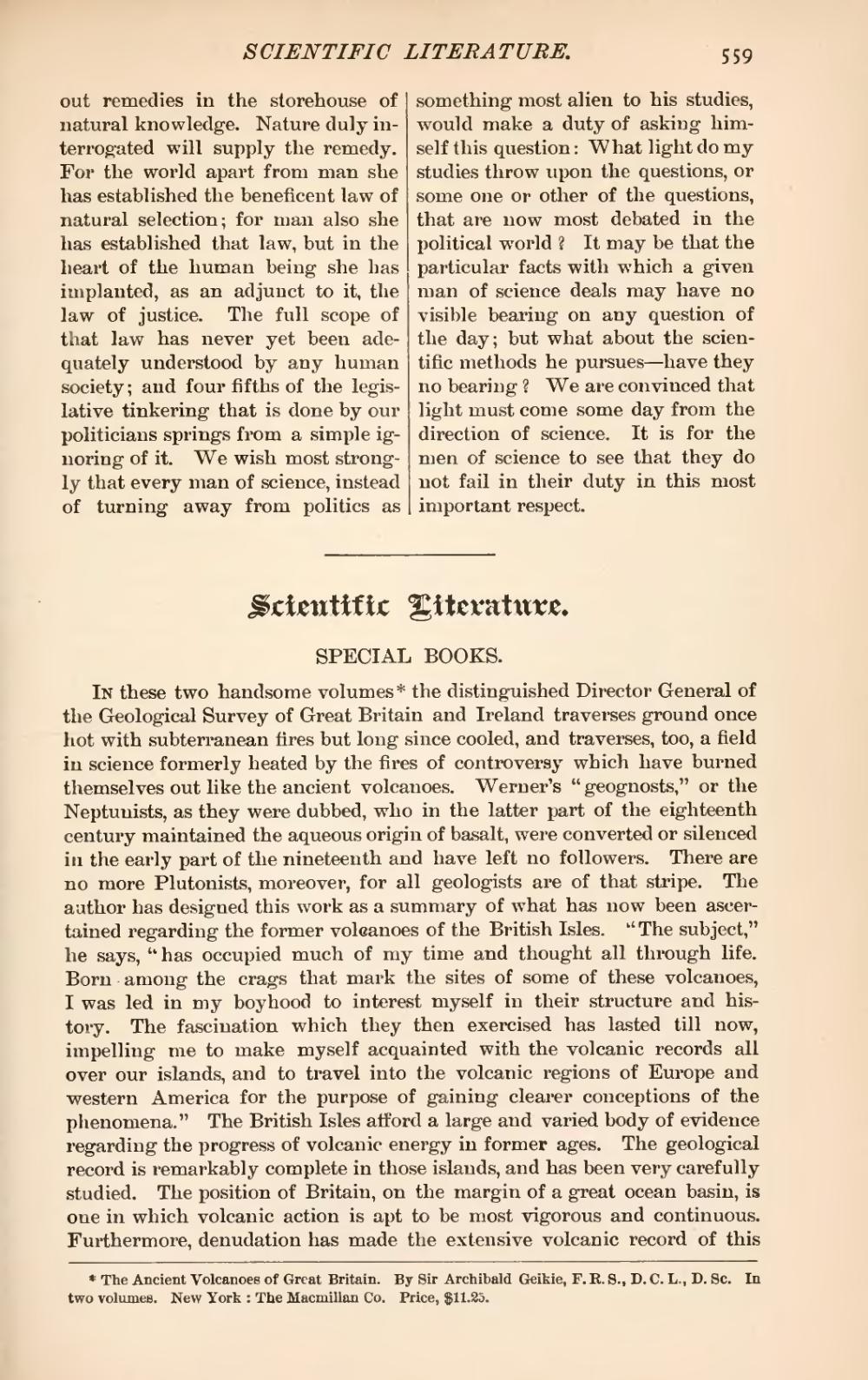out remedies in the storehouse of natural knowledge. Nature duly interrogated will supply the remedy. For the world apart from man she has established the beneficent law of natural selection; for man also she has established that law, but in the heart of the human being she has implanted, as an adjunct to it, the law of justice. The full scope of that law has never yet been adequately understood by any human society; and four fifths of the legislative tinkering that is done by our politicians springs from a simple ignoring of it. We wish most strongly that every man of science, instead of turning away from politics as something most alien to his studies, would make a duty of asking himself this question: What light do my studies throw upon the questions, or some one or other of the questions, that are now most debated in the political world? It may be that the particular facts with which a given man of science deals may have no visible bearing on any question of the day; but what about the scientific methods he pursues—have they no bearing? We are convinced that light must come some day from the direction of science. It is for the men of science to see that they do not fail in their duty in this most important respect.
SPECIAL BOOKS.
In these two handsome volumes[1] the distinguished Director General of the Geological Survey of Great Britain and Ireland traverses ground once hot with subterranean fires but long since cooled, and traverses, too, a field in science formerly heated by the fires of controversy which have burned themselves out like the ancient volcanoes. Werner's "geognosts," or the Neptunists, as they were dubbed, who in the latter part of the eighteenth century maintained the aqueous origin of basalt, were converted or silenced in the early part of the nineteenth and have left no followers. There are no more Plutonists, moreover, for all geologists are of that stripe. The author has designed this work as a summary of what has now been ascertained regarding the former volcanoes of the British Isles. "The subject," he says, "has occupied much of my time and thought all through life. Born among the crags that mark the sites of some of these volcanoes, I was led in my boyhood to interest myself in their structure and history. The fascination which they then exercised has lasted till now, impelling me to make myself acquainted with the volcanic records all over our islands, and to travel into the volcanic regions of Europe and western America for the purpose of gaining clearer conceptions of the phenomena." The British Isles afford a large and varied body of evidence regarding the progress of volcanic energy in former ages. The geological record is remarkably complete in those islands, and has been very carefully studied. The position of Britain, on the margin of a great ocean basin, is one in which volcanic action is apt to be most vigorous and continuous. Furthermore, denudation has made the extensive volcanic record of this
- ↑ The Ancient Volcanoes of Great Britain. By Sir Archibald Geikie, F. R. S., D. C. L., D. So. In two volumes. New York: The Macmillan Co. Price, $11.25.
